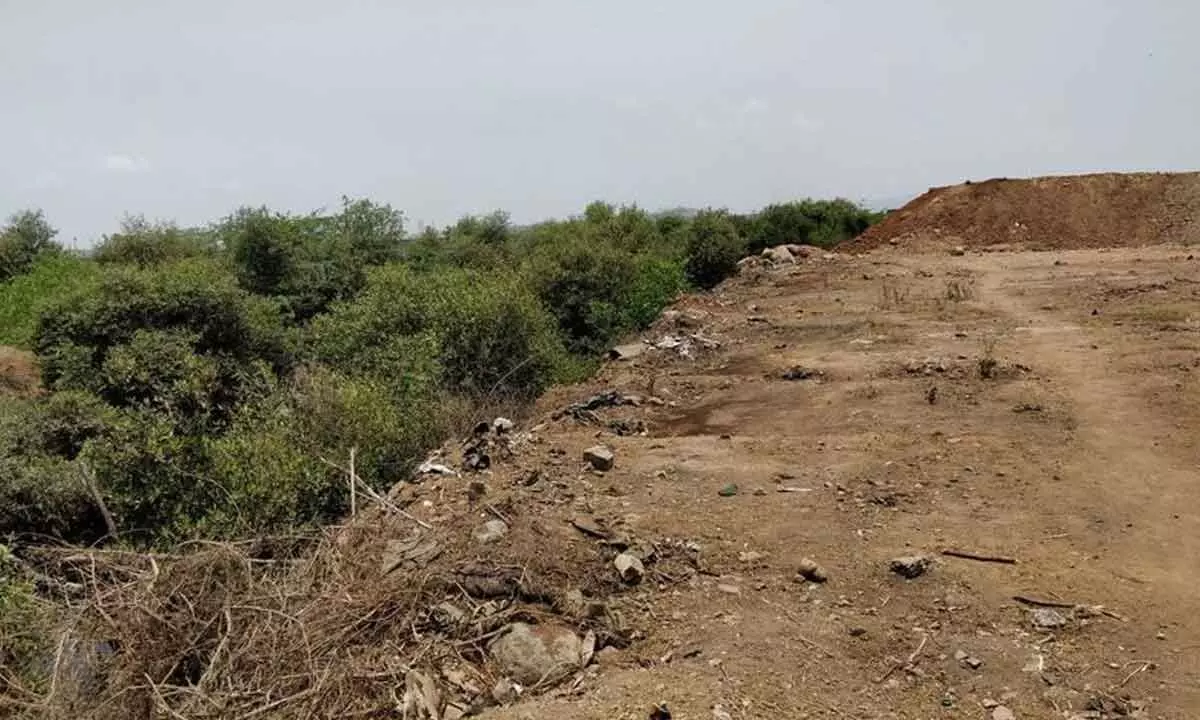Green activists urge politicians to prioritise nature in poll manifestos
Environmental degradation affects everyone, including politicians themselves. By making environmental care a central election issue, voters can ensure a healthier future for all
image for illustrative purpose

Seeking to make politicians accountable for environmental protection, a clutch of green activists has launched a drive to make nature a part of the election manifestos.
In an open letter to all political parties, the activists said that environmental protection and the steps the parties would take to ensure conservation and sustainability must become part of the manifestos to be released for the upcoming Lok Sabha election.
Talking to Bizz Buzz, BN Kumar, Director, NatConnect Foundation who has initiated the idea says, “Politicians of all hues, whether ruling or in the opposition, must be made accountable for environmental care since the violations begin at the top.”
As we have learnt in our primary schools most of us aware of the need to protect nature to protect ourselves, but in practice most of us fail and politicians lead in this, he rued.
Our experience is also that politicians look for short-term gains in projects at the cost of the environment without realising that it affects their own voters. For instance, you take the experience of Chardham Highway and reckless development killing mangroves, floodplains and wetlands in Mumbai Metropolitan Region (MMR). “Despite recurring floods and landslides, we do not learn lessons,” he said.
Kumar recalled that the Prime Minister has launched an ambitious programme with a catchy acronym MISHTI - the Mangrove Initiative for Shoreline Habitats & Tangible Incomes. In practice however, mangrove destruction for major projects has literally become the order of the day. Moreover, an independent audit of the mangrove diversion, which practically is destruction, is missing, the activists said.
Political leaders can't run away from the fact that degradation of nature and environment will also impact their own lives and wellbeing, Nandakumar Pawar, head of Sagar Shakti said.
“The environment protection has to be a highest priority as under the guise of development, we are losing nature,” Pawar said and called for making political leaders accountable to voters for the protection of environment and nature under their constituencies. Nature care begins at home, he pointed out.
India lacks a national-level 'green party,' a political entity dedicated to environmental concerns, said Godfrey Pimenta of Watchdog Foundation. “Regardless of political attention, it is evident that environmental issues intricately connect with our daily lives,” he said.
Pimenta pointed out that political focus should centre on air, water, jungles, and land—addressing the crucial aspects of hava, jal, jungle, zameen.
Maharashtra, blessed with rich biodiversity, urgently requires preservation, he said and regretted that pollution threatens the oceans and creeks, mangroves face constant threats, and 28 rivers in the state are on the brink of a slow demise due to urban pollutants, posing a formidable challenge in waste disposal, he regretted. He also called for a strict regulation on curtailing plastic use.
In light of recent events, the significance of prioritizing the environment as a crucial election criterion has become increasingly evident, said Rekha Sankhala, Citizen Activist, Nerul, Navi Mumbai. Sankhala, who petitioned the NGT to save a sensitive CRZ-dominated plot with crowd funding and engagement of over 240 concerned citizens, said “we have observed a disheartening trend where those entrusted with safeguarding the environment have turned into its oppressors”. Nowhere else is this more palpable than in Navi Mumbai, where the cherished wetlands are under threat due to the ambitious development plans spearheaded by CIDCO and NMMC, with the backing of the Maharashtra Government's Gazette, she said.
“It is imperative that we elect a government that not only respects the rulings of bodies like the NGT but also actively involves citizens and environmental NGOs in decision-making processes regarding urban development,” Sankhala said.
Development is an important aspect of progress, but foundation and strategy of development plays an important role, said Jyoti Nadkarni of Khaghar Wetlands and Hills.
“Rampant Development by destroying nature is not sustainable, and we have seen the consequences of such development time and over,” she said and stressed that “it is high time our politicians realise that this world belongs to all and no one can escape the consequences of disaster”.
Indore based Sanjay Gupta , co-founder of Alliance for Rivers in India (AFR), pointed out that environmental care is not about causing hurdles in industrialisation, but is the best method for political parties to earn public support.
In every constituency, youth in multiples of hundred can be identified, who can keep innovating practical methods and solutions for environmental protection. Government as well as the opposition must involve themselves in this task, Gupta said.
Parsik Greens forum convenor Vishnu Joshi expressed concern over the increasing trend of cutting the hill slopes and bottoms to suit builders and without caring for the environment. “I will Vote keeping the environmental issue in my mind,” Joshi said.
The problem with election manifestos has been that they are high level and vague, said Kharghar-based activist Nareshchandra Singh. “There is need for more definite commitments and actual objectives from the various candidates and parties,” he cited the example of inordinate delays in notifying wetlands for conservation. The delay in officially notifying the wetlands as per the National Inventory of Wetland Atlas is leading to the neglect and destruction of the precious water bodies, Singh lamented.

